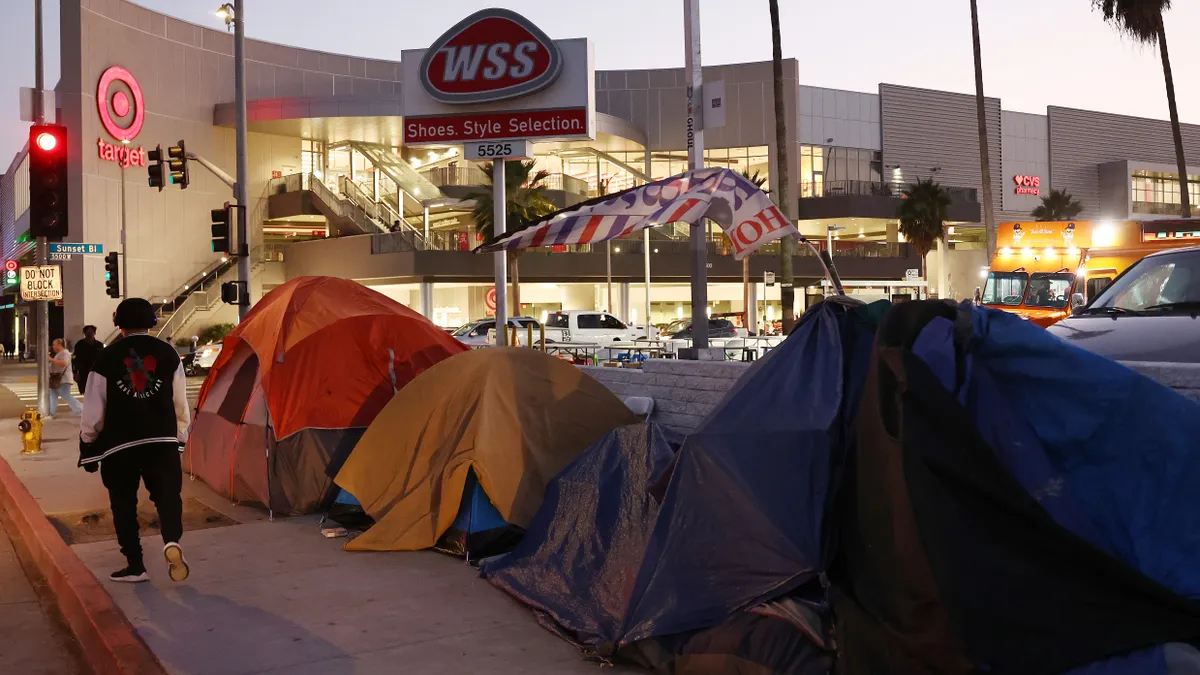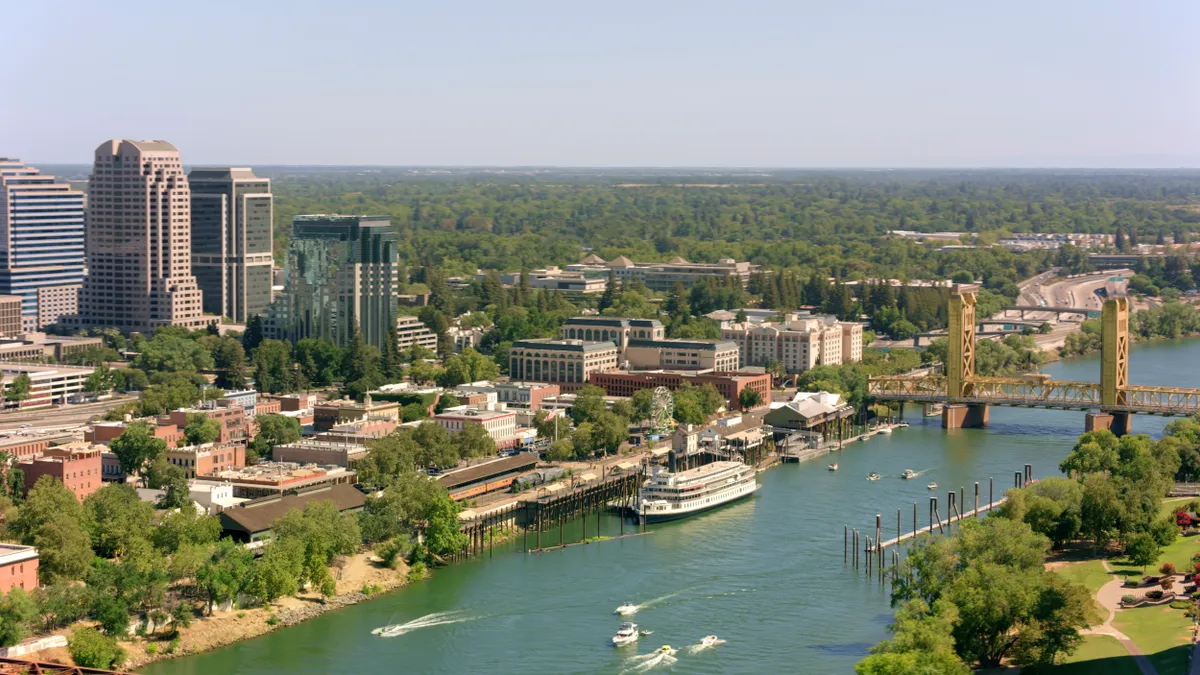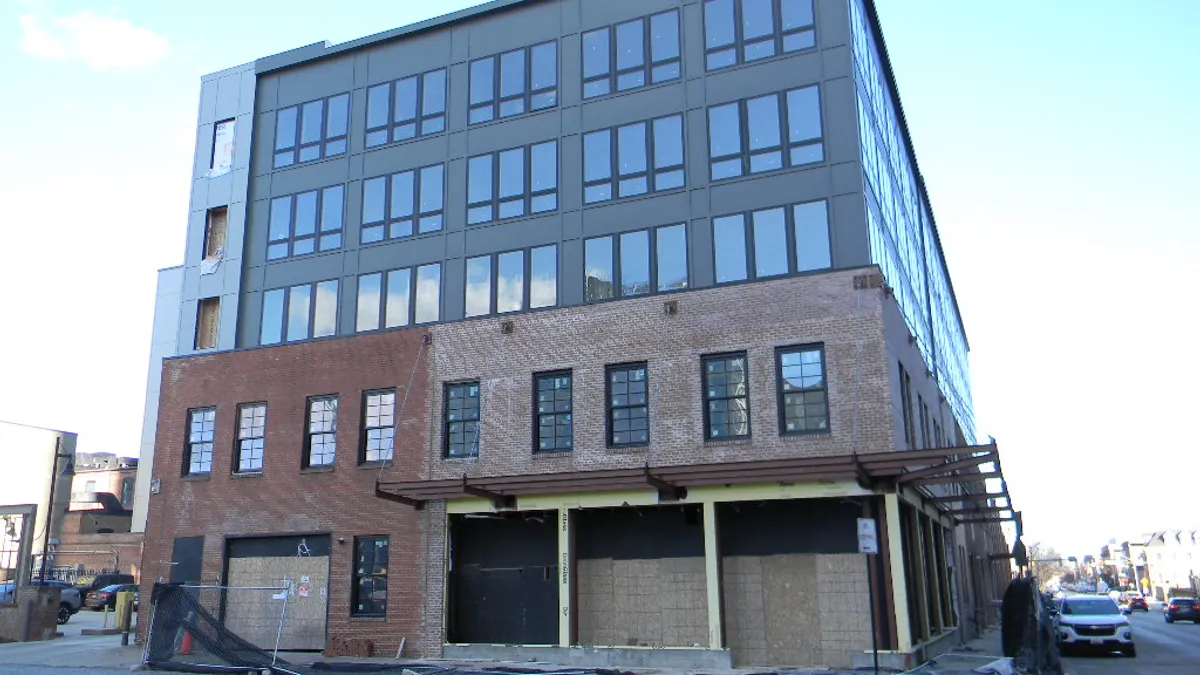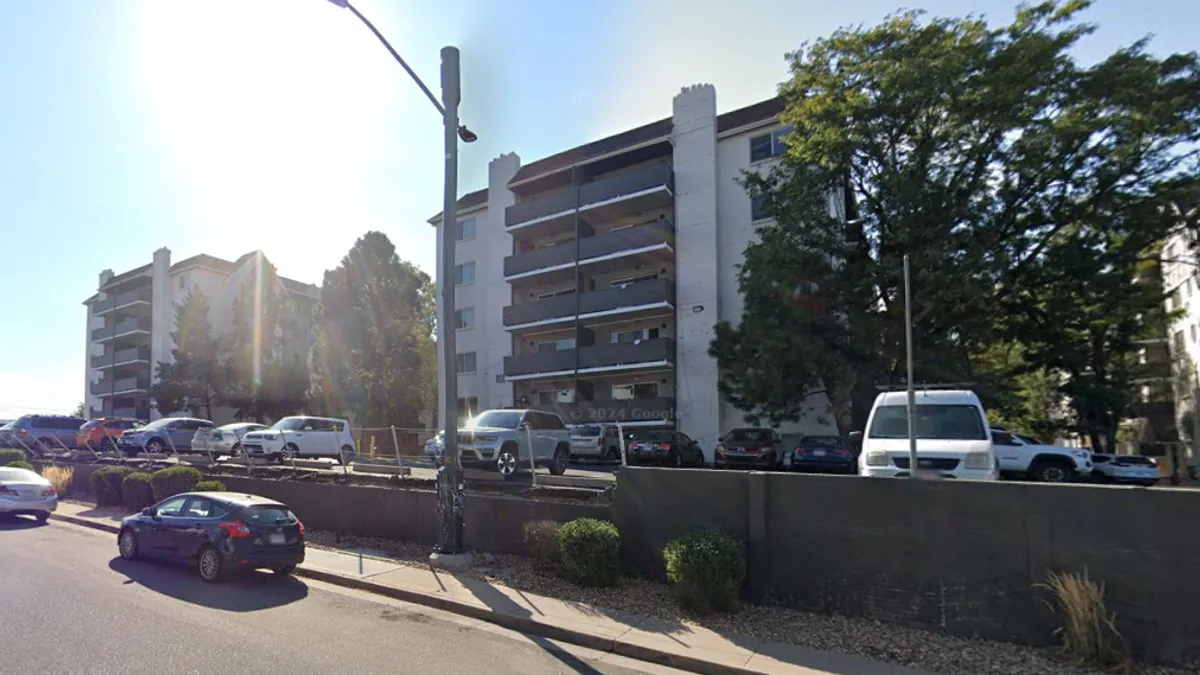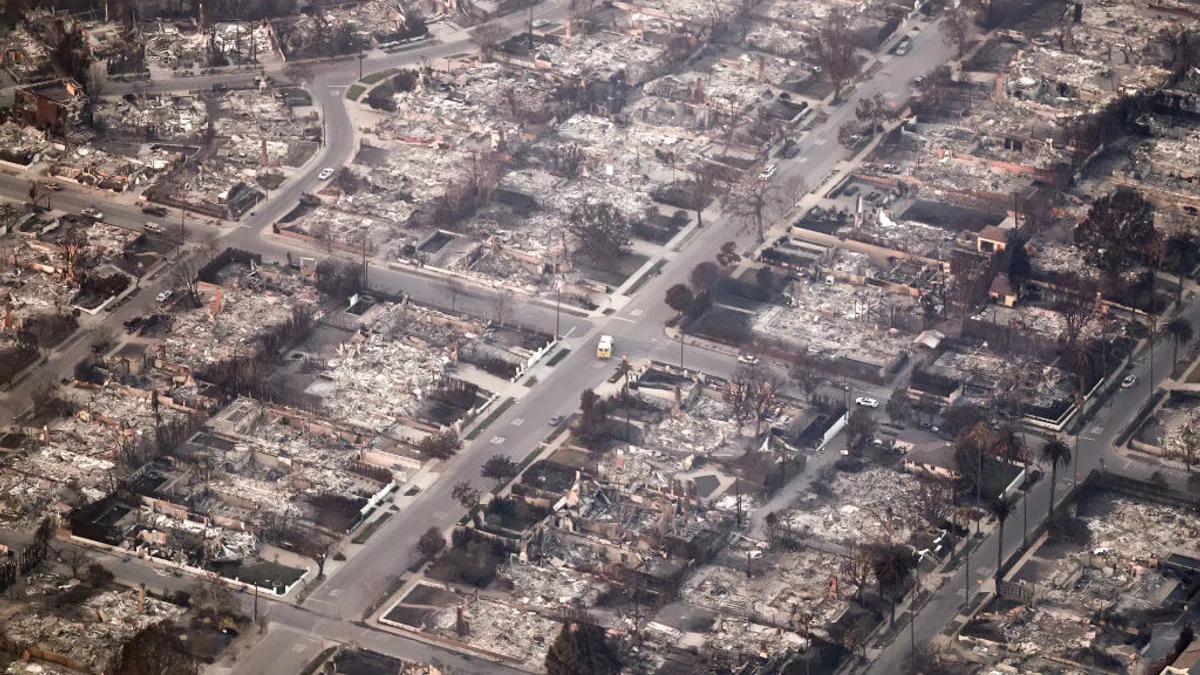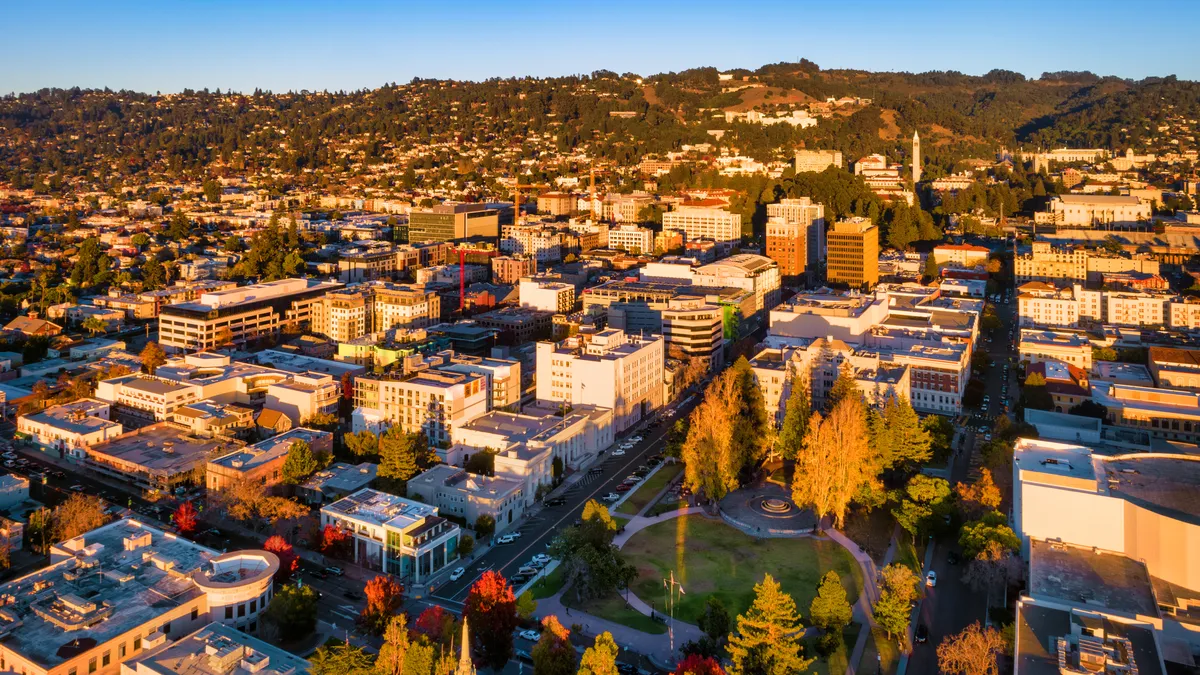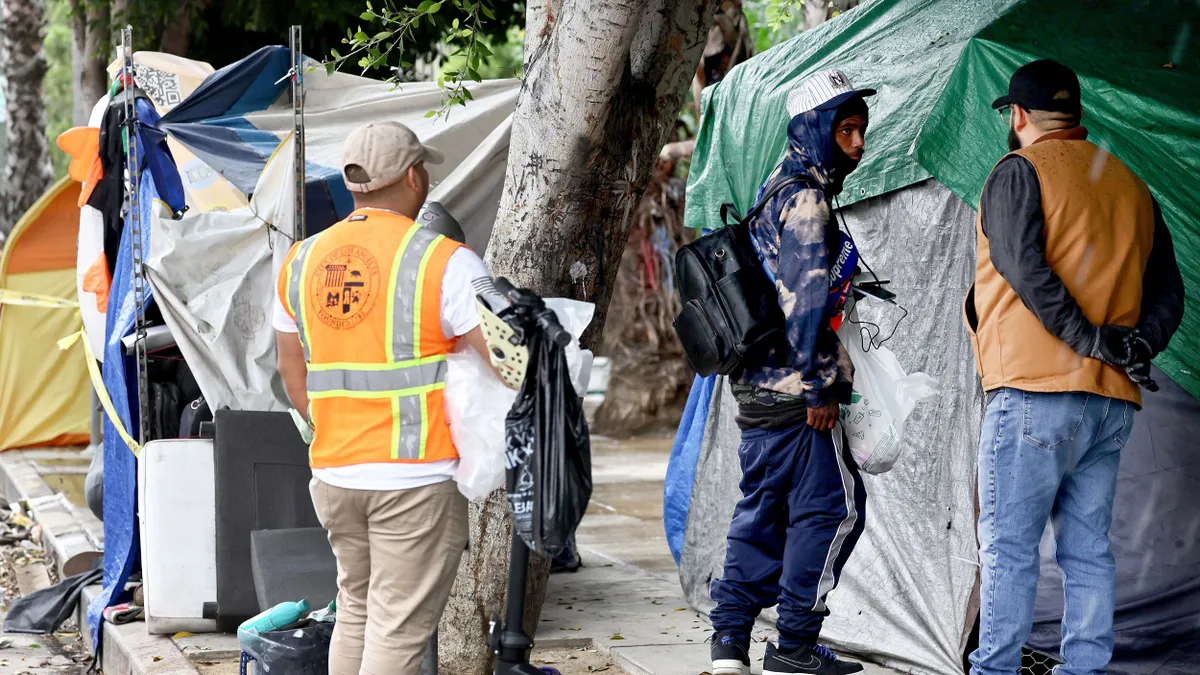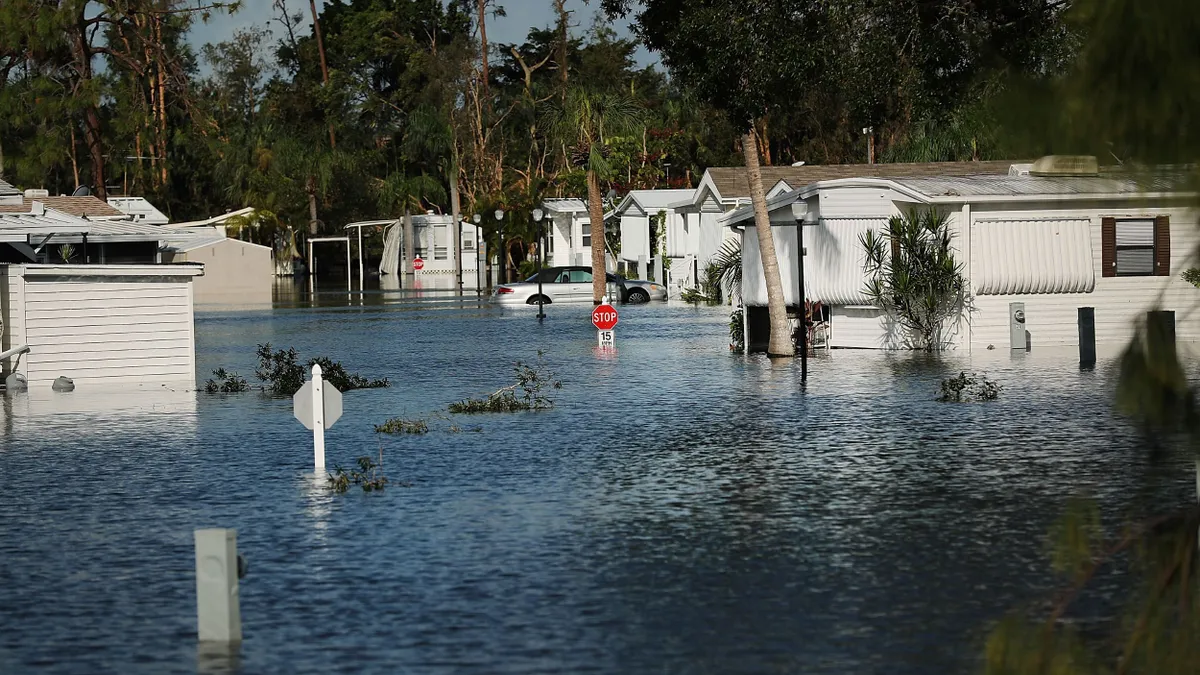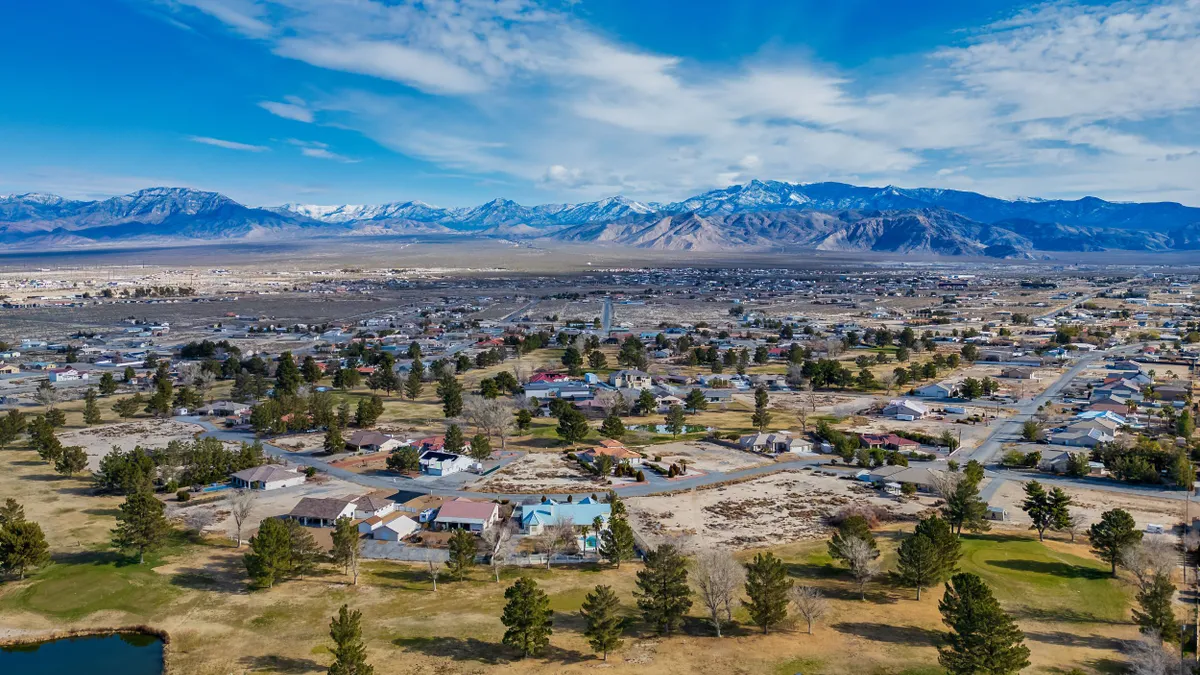Cities, states and advocates for businesses and homeowners are urging the U.S. Supreme Court to overturn a lower court ruling that restricts local governments in Western states from enforcing anti-camping laws against people who are homeless — policies that civil rights advocates say are unjust, unconstitutional and do not solve homelessness.
The U.S. Court of Appeals for the 9th Circuit first ruled in 2018 that Boise, Idaho, could not enforce its laws preventing a person from camping out in public spaces at night when overnight shelter space is unavailable in the city. Such laws that criminalize people experiencing homelessness are considered cruel and unusual punishment in violation of the Eighth Amendment, the 9th Circuit ruled.
In addition to Idaho, that ruling applies in Alaska, Arizona, California, Montana, Nevada, Oregon and Washington, in addition to Hawai’i, Guam and the Northern Mariana Islands.
It has largely restricted communities in the 9th Circuit’s jurisdiction from clearing homeless encampments, where people sleep in tents or temporary structures in public spaces — a growing and highly visible issue that has caused political controversy in communities.
Homelessness has grown in many cities throughout the U.S. in recent years, as has the cost of buying and renting a home. Many unhoused people have turned to living in tents or sleeping bags in public spaces instead of sleeping in shelters due to a lack of available space or requirements for entry, such as sobriety, pets or time-of-entry restrictions. Some people also choose not to enter shelters due to criminal activity they have experienced there.
But cities and members of the public have blamed encampments for crime, health and safety concerns and economic loss — and say there is often trash, blocked sidewalks, human feces and open drug use around them.
The U.S. Supreme Court in January agreed to review the 9th Circuit’s decision in Johnson v. City of Grants Pass, which applied the appeals court’s 2018 decision and struck down the Oregon city’s anti-camping rules. The Supreme Court’s ruling on this case, which must be made by the end of this summer when the court’s term ends, will have implications for how communities nationwide can address homelessness.
The Supreme Court will hear oral arguments today, and numerous cities and the state of California have filed amicus briefs arguing the 9th Circuit’s restrictions on enforcing anti-camping laws make it harder for them to address the homelessness crisis.
The League of Oregon Cities, joined by the city of Portland and other groups in Oregon, Washington and Idaho, wrote in a brief to the high court last month that the 9th Circuit implemented “unworkable restraints” on local governments that have allowed encampments to “overwhelm public spaces and threaten the health and safety of both housed and unhoused communities.”
“Cities have been navigating the difficult balance between community member shelter needs and the access to public spaces,” said Jayme Pierce, general counsel at the League of Oregon Cities in an email.
Some experts and advocates disagree. Anti-camping laws interfere with a community’s ability to solve homelessness, said Steve Berg, chief policy officer at the National Alliance to End Homelessness. The nonprofit advocacy group filed an amicus brief advocating for the high court to uphold the 9th Circuit ruling.
Laws criminalizing camping further upend the lives of homeless people, leaving them with jail records that make it harder to land a job or an apartment, Berg said. During sweeps, people often lose important documents or contact with a caseworker they have been receiving support from, he said.
Anti-camping policies also create “conflicts and disagreements among people working on the issue, rather than people working together for solutions,” he said.
Cities left with difficult choices
The League of Oregon Cities, in its amicus brief, stated that responding to homeless encampments is a growing, pressing and complex problem faced by local governments. Portland, Oregon, for example, receives thousands of complaints weekly alleging domestic violence, drug use and unsanitary waste at such sites.
Cities in Oregon also face significant financial costs related to mitigating the impacts of camping, said Ariel Nelson, a lobbyist with the League of Oregon Cities in an email.
They may need to make structural repairs to bridges, conduct environmental mitigation where watersheds and floodplains are damaged, address fire dangers and remove fish traps or dams in protected salmon habitats.
It’s often difficult for local governments to connect people with housing and shelters. Cities, including those in Oregon, are often hampered by a lack of state and federal funding and resources to assist with their homeless response efforts.
It’s also unclear how cities are and are not allowed to act under the 9th Circuit’s decision, the League of Oregon Cities’ brief adds. Cities often can’t determine if shelter is realistically available to individuals who are unsheltered, and the 9th Circuit has given little guidance on which anti-camping laws are allowed, the document says.
“Even if a city could build enough shelters to house its entire homeless population—a budgetary impossibility for most cities—it is not clear even that would be enough,” the brief states.
The city of Chico, in Northern California, told the high court in its brief that public agencies are left in the dark about which health and safety regulations can be enforced “because the Ninth Circuit has left such questions open to seemingly unending litigation.” The city added that no resident should be worried whether public officials can prevent “sprawling homeless encampments” near their neighborhoods, parks, waterways, schools, shopping centers or city centers.
California Governor Gavin Newsom said in a statement last month that California is investing billions to build housing and provide services to move people from tents into safer situations but that encampments are dangerous. The state of California urged the Supreme Court in its own amicus brief to establish a balance that allows cities to enforce what Newsom described as “reasonable limits on camping in public spaces, while still respecting the dignity of those living on our streets.”
“By setting out a clear rule, the Court can empower state and local governments to enact and enforce compassionate policies that will help save lives, strengthen their communities, and ultimately work to stem the tide of this homelessness crisis,” Newsom stated.
Alternatives to anti-camping laws
Berg believes it’s unlikely the Supreme Court will clarify how cities can enforce anti-camping laws, as Newsom suggested, and will likely just overturn the 9th Circuit’s ruling.
The Southern Poverty Law Center, a nonprofit legal advocacy group, stated in its brief to the high court that such laws “are punishment for the universal human need to sleep, something only people who are homeless and involuntarily unsheltered are forced to do in public places.”
It added that other courts have administered legal standards that are workable for local governments while still ensuring that they do not unlawfully punish people for being homeless.
The National Alliance to End Homelessness echoed these concerns in its brief, saying that unsheltered homelessness is often caused by factors beyond someone’s control and is often associated with the rising cost of housing.
Many arguments for enforcing anti-camping laws, the nonprofit stated, are based on misconceptions, like that most homeless people are addicted to drugs or alcohol or are mentally ill. It also says that the 9th Circuit decision does not hamper efforts by cities to reduce encampments because they can implement strategies such as housing first, which prioritizes housing people who are homeless.
Rather than enforcing anti-camping laws, cities should implement policies that help people who become homeless by engaging with them in a positive way so they can connect them with the resources needed to keep them safe and get them back into housing as quickly as possible, Berg said.
Local officials also need to address the shortage of affordable housing in their communities — especially housing within reach of the lowest income earners or those living on disability benefits, Berg said.
“In some of these communities, I fear that sometimes the elected officials who aren’t doing a very good job of promoting more housing for people with low incomes in our community want to point the fingers somewhere else,” Berg said. “If they can point the finger at homeless people or the homeless [service] providers, they’ll do that rather than actually do the work to make more affordable housing available.”


